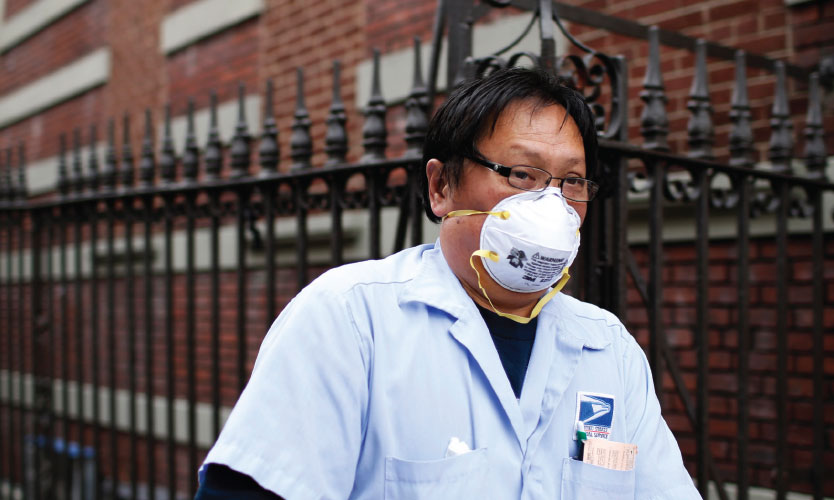Presumption measures worry payers
- September 14, 2025
- Posted by: Web workers
- Category: Workers Comp

Workers compensation for viral infections has typically been a benefit reserved for those on the front lines of battling disease, and experts are concerned that state measures that would expand the eligibility could cripple comp systems.
As of April, several states had expanded or were considering widening access to workers compensation coverage for COVID-19 beyond first responders and health care workers to include other workers labeled essential.
Kentucky and Illinois became the first states to implement emergency orders to provide workers comp access to public-facing essential workers, such as grocery, pharmacy, Postal Service and daycare workers. Lawmakers in Louisiana and New Jersey also recently proposed legislation to expand COVID-19 coverage beyond first responders and health care workers, who traditionally are covered by comp in the event of contracting a communicable disease.
While the changes have been lauded by employee groups and unions, they could have a significant negative financial impact on the workers comp industry, experts say.
The American Property Casualty Insurance Association said it “strongly opposes these retroactive executive branch edicts that violate long-established, bedrock principles of workers compensation law.”
“This approach is extremely dangerous to the long-term stability of the state workers compensation system,” said David Sampson, Washington-based APCIA president and CEO.
In Kentucky, an executive order signed by Gov. Andy Beshear entitles frontline workers removed from work because of workplace COVID-19 exposure or suspected exposure to temporary total disability payments during the quarantine period, even if the employer ultimately denies liability for the claim.
In Illinois, the state’s workers compensation commission issued an emergency amendment in April creating a rebuttable presumption for COVID-19 acquisition that extends to nearly all workers.
Rich Lenkov, capital member and head of the workers compensation practice at Bryce Downey & Lenkov LLC in Chicago, foresees more states adopting similar COVID-19 workers compensation approaches, and possibility even coverage at the federal level similar to that implemented after 9/11.
Mr. Lenkov said he also expects to see challenges to the orders and emergency amendments in court. Two Illinois business associations filed the first of such challenges. A judge issued a temporary restraining order April 24 halting the workers comp expansion, stating that the emergency order amounted to “invalid lawmaking.”
The sweeping changes present “a potentially enormous and unfair burden on workers compensation insurers that’s completely unprecedented in history,” said Robert Hartwig, clinical associate professor and director of the Risk and Uncertainty Management Center at the University of South Carolina in Columbia.
“It has never been the case that employers have been held responsible for such things as an employee catching a cold or catching the flu from a co-worker or client or customer because it’s virtually impossible to prove that such things were contracted in such a manner,” Mr. Hartwig said. “This is potentially extraordinarily costly to workers comp insurers, but also to many large employers who have either very high-deductible programs or are largely self-insured.”
The change could also be “potentially catastrophic to workers comp state funds,” he said.
Traditionally, employees must meet their burden of proof by showing their accidents arose out of and in the course of their employment and that the condition was caused by work, Mr. Lenkov said.
“This rule change makes it much easier to prove that,” he said. “But it’s important to remember that this is still a presumption and a rebuttable one, so employers should still do their due diligence and investigate every workers comp claim because you can overcome the burden,” Mr. Lenkov said.
The real financial impact will come on the higher end of the severity spectrum, such as individuals needing intensive care or dying from the virus, said Mike Hessling, CEO North America of Rolling Meadows, Illinois-based Gallagher Bassett Services Inc. “That’s where the real cost is going to be material for employers. … But no one really knows how many claims we’ll see as a result of this or what the financial impact will be.”
Employers in Illinois could potentially be on the hook for medical treatment, total temporary disability during quarantine and/or recovery, and possibly a settlement if the worker suffers permanent damage to the lungs or other organs from COVID-19, said Lisa Azoory-Keller, partner at Chicago law firm Nyhan, Bambrick, Kinzie & Lowry P.C.
“It’s going to be really hard to rebut that presumption,” she said. “I don’t expect employers to even invest the money to fight it because rebutting the presumption is going to be such a huge standard. I think employers are just going to be inclined to roll over and pay given the new emergency action.”
But certain classes of employees covered by the rule in Illinois may face an uphill battle trying to prove that they contracted COVID-19 from work, Mr. Lenkov said. For example, covered hotel employees who have not been exposed to guests would have that presumption fairly easily refuted, he said.
While the various emergency orders and amendments demonstrate “a strong desire to impact positively a very difficult situation,” they have the potential to upend the “delicate balance” of the workers compensation system, said John Hanson, an Atlanta-based senior consultant with Willis Towers Watson PLC.
“Everyone agrees that the right thing is to find a solution for folks with occupational COVID,” he said. “That is the right thing, but the answer is that it may not be in the comp system.”
In Europe, several insurers have begun offering supplemental health coverage to employers that essentially provides the equivalent of medical and indemnity for COVID-19 claims. Mr. Hanson said this could be a viable alternative in the U.S. to covering COVID-19 in the comp system.
More insurance and workers compensation news on the coronavirus crisis here.



